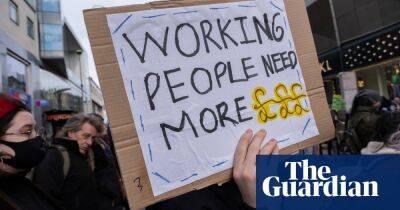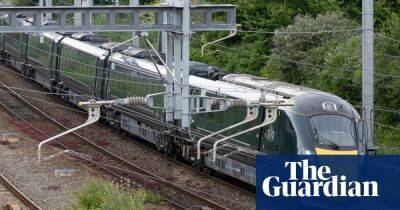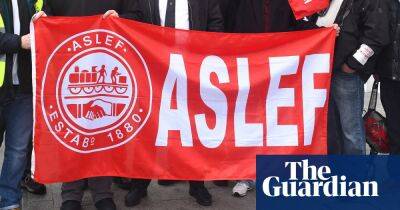Aslef union to announce results of strike ballots by train drivers
The national rail dispute will reach a critical juncture on Monday with the results of ballots for industrial action by drivers at eight train companies, as talks resume with the biggest rail union to head off more strikes.
The votes, called by Aslef, could lead to action with even more impact than duringlast month’s strikes by 40,000 RMT workers – when the absence in particular of signallers stopped most services in the UK – particularly if it coincides with action by Network Rail managers, whose ballot by the TSSA (Transport Salaried Staffs’ Association) will also be announced on Monday.
A strike by Aslef drivers would halt services at the affected train companies – Chiltern, GWR, LNER, London Overground, Northern, Southeastern, TransPennine and West Midlands – while action by the smaller TSSA union could deprive the rail network of contingency staff to keep services running during a wider strike at Network Rail.
The TSSA union has discussed timing action to coincide with the Commonwealth Games at the end of July, although no firm dates have been announced.
Talks will resume on Monday between train companies, Network Rail and the RMT, which paused discussions last week for its annual general meeting, in which the union’s leader, Mick Lynch, vowed to keep up “the fight of our generation”.
Hopes of a breakthrough appear scant unless the government agrees rail workers should be allowed an increase of more than 2%. The general secretary of Aslef, Mick Whelan, said train companies were having below-inflation offers dictated by their contracts with the Department for Transport.
“Originally they weren’t saying it was the government. Now they’re being honest and saying the government has limited them to 2%,” he said.
With a mandate
Read more on theguardian.com

![Down by 93%, but not quite out – The SushiSwap [SUSHI] story](https://finance-news.co/storage/thumbs_400/img/2022/8/8/36304_clbt.jpg)






![A reversal pattern for Stellar [XLM] has these few implications](https://finance-news.co/storage/thumbs_400/img/2022/8/7/36297_rxdjc.jpg)












